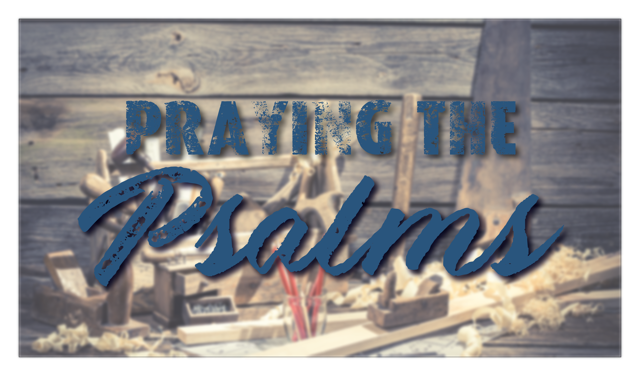Framing the Psalms:
Like the soul, the Psalms are an anatomy that is not easily mapped and all interaction with them is inadequate as there is more than can be touched, therefore all attempts at framing leave us wanting. The Psalms present in a seeming random order, on purpose. Especially in the West we assume the mind is an orderly and consistent phenomenon, it is not. We are an ever-changing process of percolating energies that are responding to known and unknown stimuli. Our frustration over a lack of consistency comes because of our expectation for it. We do and must strive to find greater order and maturity but always struggle. The Psalms presentation mirrors this experience, they come at us as seemingly inconsistent, yet this is all our experiences of life.
Opposed to animals or angels, humans need tools & guides for life. Specifically we need tools to navigate our inner landscape and the contours of our society in prayer before God. Generation after generation has turned to the Psalms to learn how to pray and navigate such intricate territory, as the Psalms encompass the full human experience.
This summer we are engaging the simplistic frame offered by Walter Brueggemann of Order, Disorder, Reorder (O-D-R). The frame offers flexibility & makes no claim of comprehensiveness. It follows the basic pattern of the maturation process that exists throughout scripture and is most prominent in the life of Christ. Life, Death, Resurrection. To find life we lose it, to gain we give away, to live we die.
Life is not static. Sometimes we find ourselves squarely on the ground of O, D or R. But as often or more we are in transition between them. No transition is utterly complete although movement can be measured. Movement is not sequential as we can find ourselves in R one day and D the next, yet like a mosaic, when we zoom out a pattern of maturity surfaces.
The Psalms are tools both to give speech to our experiences and articulate & evoke so that what has happened can be experienced.
Order, Disorder, Reorder:
O: Seasons of wellbeing, typically in the first half of life, delight, blessing, joy, gratitude for the reliability of God and God’s governing law. I followed the rules and was rewarded. Affirmation that the world is ordered and experienced largely as cause and effect and God is presiding over the process.
Examples:
Psalms of Creation 145, 104, 33, 8 Torah 1, 119, 15, 24 Wisdom 37, 14 Retribution 112 Occasions of well-being 133, 131.
D: Seasons of anguish, suffering, alienation, evoking rage, self-pity, resentment, hatred. Discovery that life does not always operate as cause & effect and this languishing is the proper subject of discourse with God. I followed the rules and got pummeled. Everything must be brought to speech and that speech must be brought to God. Acknowledgment that we cannot control life.
Psalms here are subversive against a society that would rather numb and deny. The Psalms are relentless for justice as any ill-treatment of humans is not tolerated and impatient with a God who seems to think or act otherwise.
Examples:
Personal Lament: 13, 86, 35 Communal Lament 74, 79, 137 Two Problem Psalms (our situations is terrible & God is not around) 88, 109 Lament w/ Yahweh’s response 50, 81 Lament w/ ‘internal’ focus 32, 51, 143, 130, 49, 90, 73.
R: Seasons of new grace typically experienced as surprise as they arrive when all hope seems lost. I did not avoid the darkness and was transformed, I’m not sure how. Fresh intrusions of gifts, blessings and grace that illicit gratitude and joy. Such seasons are especially refreshing as they did not seem imaginable due to the experience of D darkness. Remarkable to the Jewish experience is the reality that R cannot be experienced outside of the depths of D, there is no skipping D.
Examples:
Thanksgiving 30, 34, 40, 138 Community Thanksgiving 65, 66, 124 Once & Future King 29, 47, 93, 96, 97, 98, 99, 114


